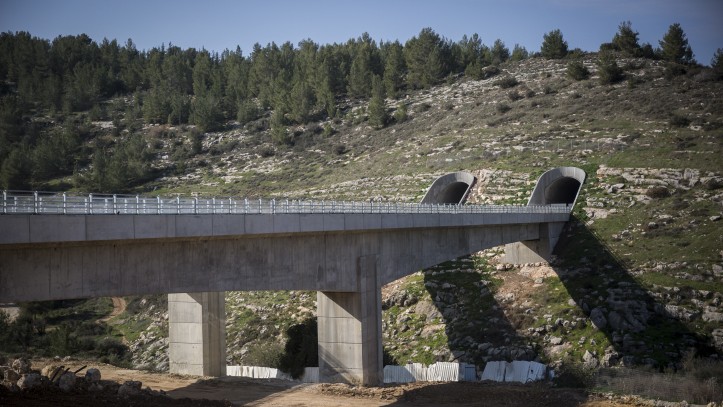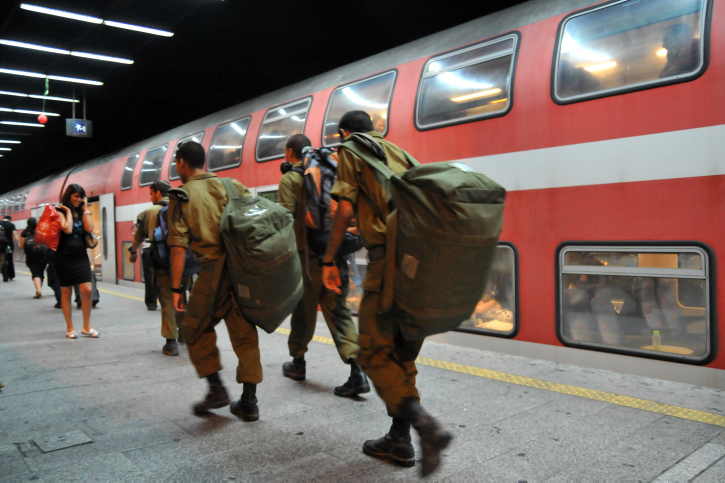 |
Israel under the leadership of Joshua bin Nun, repels the
attack of the Amalekites |
I’ve long wondered why the Torah
counsels compassion towards the Egyptian on one hand, and “never forget” with
regard to the Amalekites. The former, of
course, enslaved the people Israel, attempted genocide against them, and pursued
them as they were fleeing. The
latter? When the wandering Israelites
crossed their land, they attacked them from the rear. A one-time offense which, while cowardly, did
not deter the people Israel from realizing their destiny. And yet, we’re supposed to forgive the Egyptian
people while holding a perpetual grudge against Amalek.
Rabbi Jonathan Sacks offers an
explanation in his d’var Torah this week. The Egyptians’ fear of the Israelites, while
unjustified, was rational. It could
therefore be argued against, and ultimately be proven as wrong-headed and…abandoned
by the Egyptians. The Amalekites’ fear
of the Israelites, on the other hand, was completely irrational and therefore
could not be reasoned with. Many times
throughout history, Rabbi Sacks argues, peoples have harbored rational – if mistaken
– fears towards other groups, which (since they were ultimately rational) disappeared when proven wrong.
And therefore, the hate based upon that fear, disappeared as well. But irrational fears don’t – again,
according to Rabbi Sacks’ logic – disappear because, based on nothing real, they
cannot be reasoned away.
Using this logic, Rabbi Sacks
reasons that distrust of immigrant groups, at least sometimes, can be
considered ‘rational’ – if unjustified – and will pass away as the immigrant
group targeted, assimilates and becomes part of the national fabric. But certain irrational forms of hate –
Rabbi Sacks unsurprisingly uses antisemitism as his example – should be
opposed in the strongest terms because, being irrational, will never pass away
on their own, unopposed.
Although I mostly appreciate Rabbi
Sacks’ eminent wisdom and am usually very happy to learn from him, this
explanation of his leaves me feeling somewhat empty. The reason is that it has become virtually
impossible to discern which fears are rational and which, irrational. Part of that is due to language. The word ‘phobia,’ borrowed from Greek,
originally meant ‘irrational fear.’ Thus, ‘agoraphobia’ denotes an irrational
fear of crowded places – irrational, because there is not inherent danger
in crowded places. (‘Agora’ in Greek, means ‘public marketplace,’ like the
Turkish word ‘pazar/bazaar’ or the Arabic ‘souk.’) Rabbi Sacks uses the term ‘phobia’ as meaning
‘fear,’ period; he refers to ‘rational phobias.’ This is not a complaint against evolution in
language; I’m not the kind who believes language should be ossified for all
time. I don’t miss using the term ‘forsooth,’
for example!
But perhaps the transition in the
meaning of ‘phobia’ from ‘irrational fear’ to ‘fear,’ period, indicates that
rationality, and therefore irrationality, has become subjective. For example, in our time there are many rational
reasons to avoid crowds. Crowds invite
real dangers – crime, terrorism – that cannot be written off as
irrational. I’m not suggesting that we
should all walk away as soon as we find ourselves in a crowd. But to dismiss concern about crowds as irrational,
represents a denial of facts.
The term ‘islamophobia’ has become
popular, and is often applied to any tendency to fear Muslims. Is ‘islamophobia’ irrational? The reality is that in Israel, in Europe…really,
just about anyplace in the world, there are Islamists who will use violence and
terror to attack and weaken the resolve of the West, their goal being the
establishment of a worldwide caliphate.
If one reads their literature and listens to their broadcasts, one can
see that this fear is far from irrational.
And yet, an indiscriminate lashing out towards Muslims in our midst, who
very well may not be of that mindset but rather wanting the same things in life
that you and I want, would be unjustified.
Just as Rabbi Sacks asserts that the ancient Egyptians may have had a
rational fear of the Israelites, yet that fear resulted in unjustified actions.
So today, even when nobody is
seriously suggesting a mass deportation of Muslims (or anything even
approaching that) from our various Western lands, one gets labeled an ‘islamophobe’
for suggesting that a stronger process of vetting Muslims wanting to enter our
countries from certain countries. Countries
where there is no functional, cooperating local government apparatus to assist
immigration authorities at the other end that the person wanting to cross the
border is safe, and without the associations and history that might indicate
they wanted to enter the West in order to commit violence. If ‘islamophobe’ simply means someone who
fears some Muslims, than I don’t mind being called that. But if it means someone who irrationally fears
Muslims, then the term should disappear or become less common, because some fear of Muslims is
clearly not irrational.
I guess what I’m trying to say is
that, even if some people today use the term ‘-phobe’ simply to mean ‘one who
fears,’ and not ‘one who fears irrationally,’ it is commonly used in the
latter meaning, as a way of negatively labeling, and discouraging the fear
indicated. We also use ‘phobia’ in cases
that have nothing to do with fear, at all.
For example, if I publicly state that I’m against state sanction of
same-sex marriage, I’m labeled a ‘homophobe,’ that is, one who has a(n
irrational) fear of homosexual people.
Why? After thousands of years of
religious teaching that homosexuality is wrong and should receive no sanction,
to oppose the modern state being used as an apparatus for ‘normalizing’
homosexuality, means that one harbors an (irrational) fear of homosexuals?
Irrational fear is not a good thing,
and it should be challenged. The problem
is – in today’s hyper-charged environment – separating the irrational from the
rational. Instead of having an honest
and respectful conversation to hash out what might be rational and what
irrational, we have a tendency to shout at one another and throw out
designations – such as homophobe or islamophobe – that are calculated to
de-legitimize the one, with whom one disagrees.
Regrettably, our conversations today have become so irrational, that we
are barely able to discern between the rational and the irrational. And if so, then we cannot even begin to have a real conversation where we rationally make a case for whatever it is that we believe. And that is extremely unfortunate.














